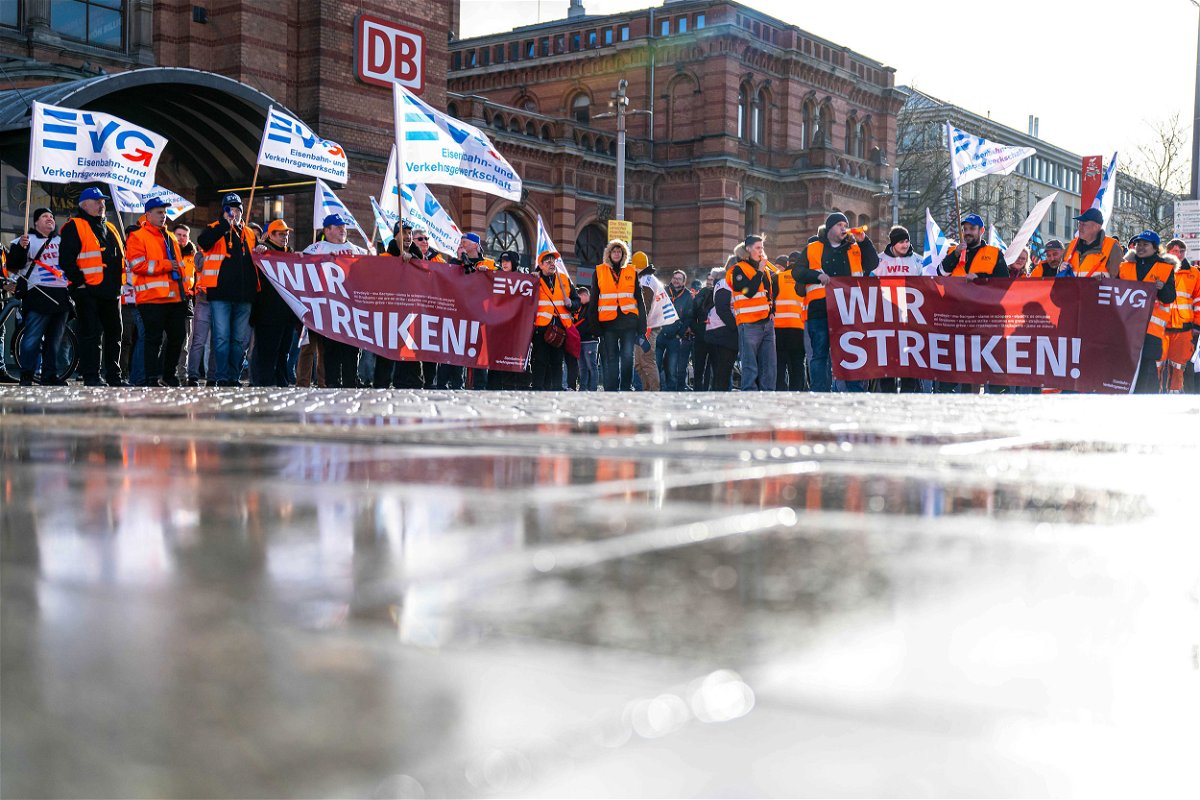Huge strikes in Germany disrupt flights, trains and buses

(CNN) -- Nationwide strikes in Germany — the biggest the country has seen in decades — are causing disruption at the country's biggest port, airports, and on public transport Monday.
The walkouts have been called by two major transport unions in Europe's biggest economy.
Ver.di, one of the unions, has demanded a 10.5% pay raise for its members, citing rising energy and food costs. More than 400,000 transport workers are taking part in the industrial action, according to Frank Werneke, the head of Ver.di.
Flights at eight major airports, including those in Munich, Frankfurt and Hamburg, have been affected by the strikes. The German Airports Association has estimated that around 380,000 travelers will not be able to take off on Monday.
And some hubs such as Munich Airport closed their doors entirely, with 200,000 passengers impacted by the two-day closure that started Sunday.
Long-distance railroad services scheduled for Monday have been suspended across Germany, as were early morning regional and commuter rail services.
In Munich, the local transport operator MVV has announced the suspension of nearly all trains, underground and tram lines. MVV expects half of all scheduled bus services to run.
Germany's largest port in Hamburg has also been hit by the walkouts, with large ships unable to call at or depart from the port.
German employers have criticized the strikes. Karin Welge, a spokesperson for the VKA, a group that represents public sector employers, called it an "unprovoked escalation."
"Rarely have I seen the population of a country affected in such a way," Welge said.
The CEO of Munich Airport was equally scathing, saying the walkouts at the airport represented "an unprecedented escalation" and were "completely disproportionate."
"The wage dispute is being fought out on the backs of our travelers and our companies," said Jost Lammers.